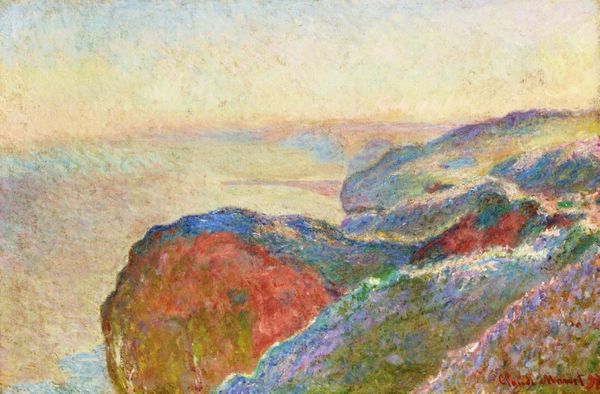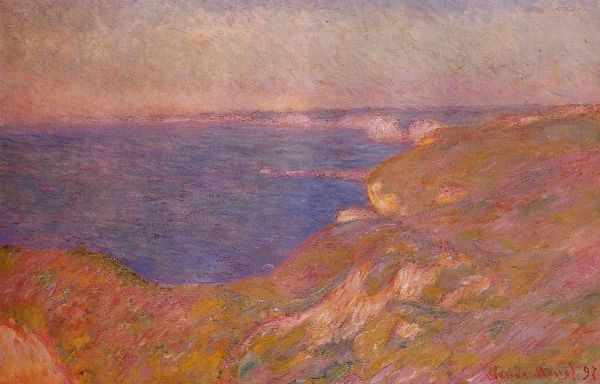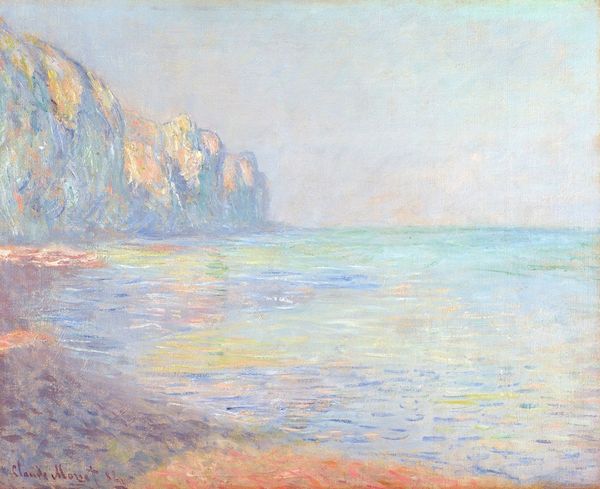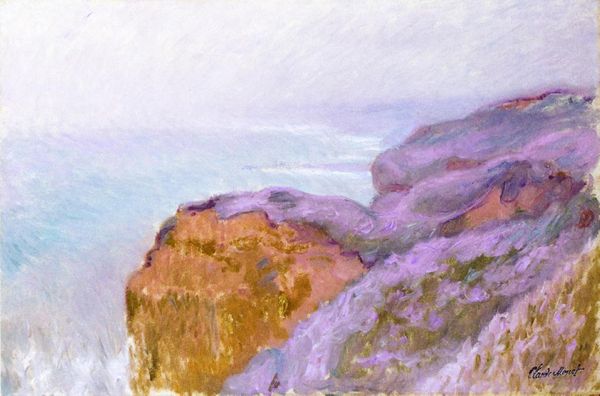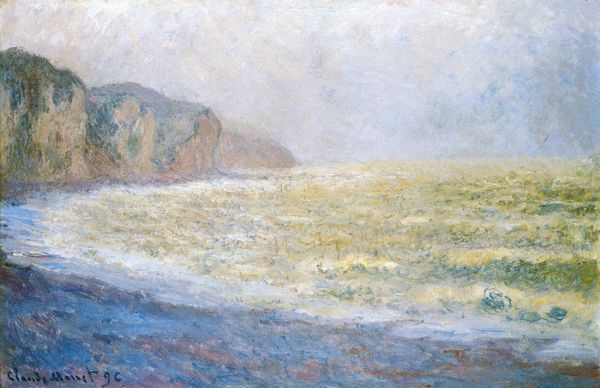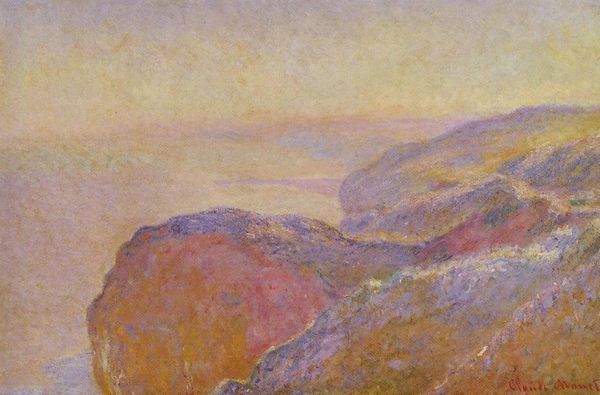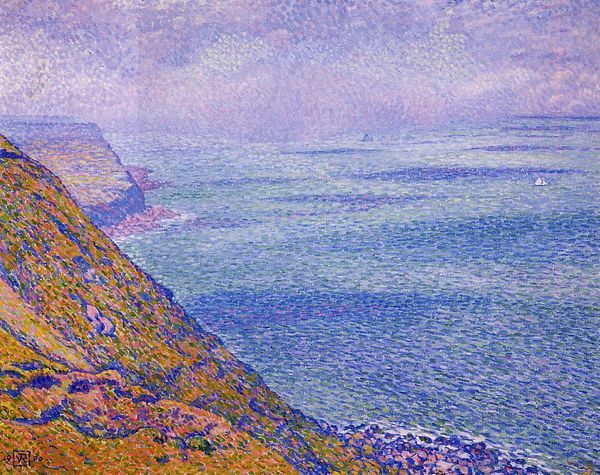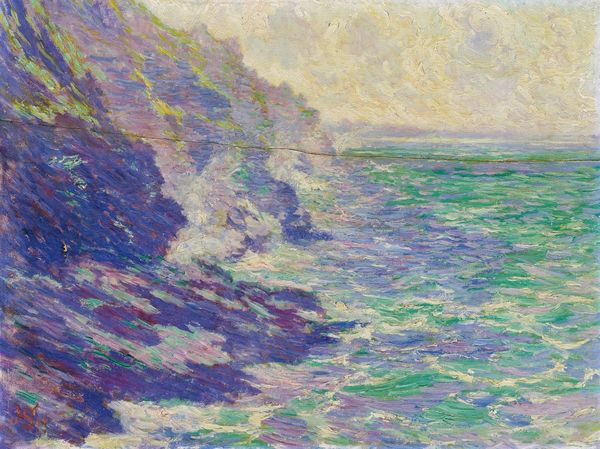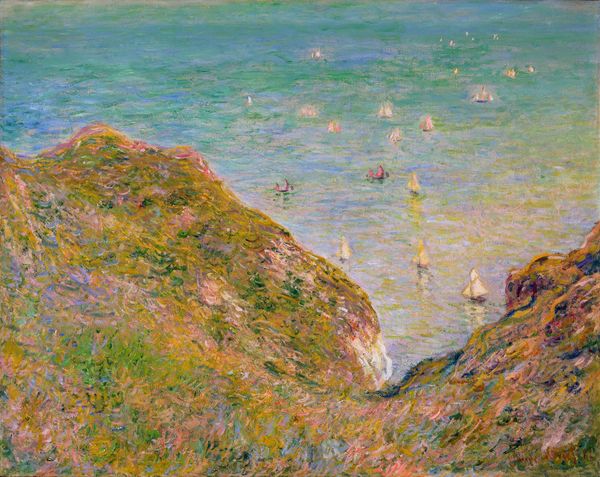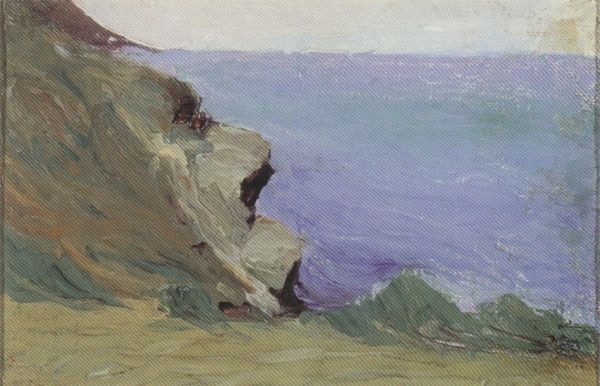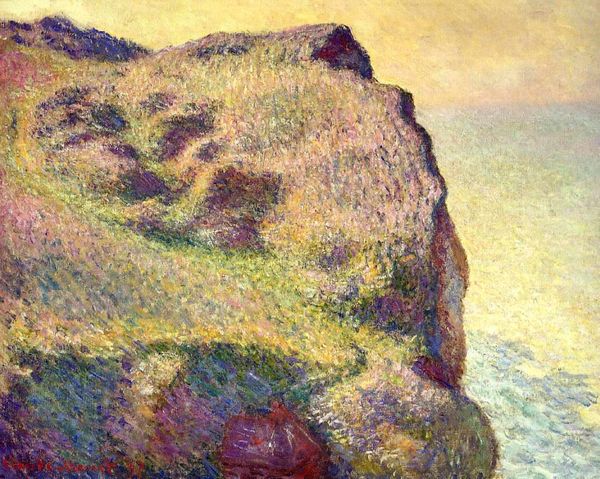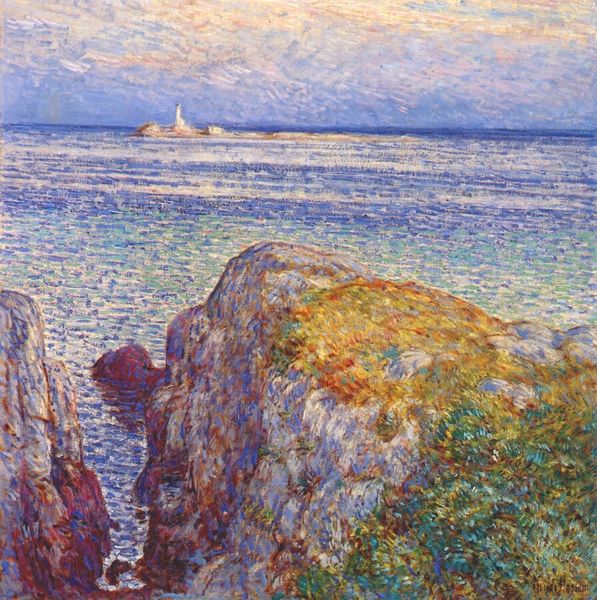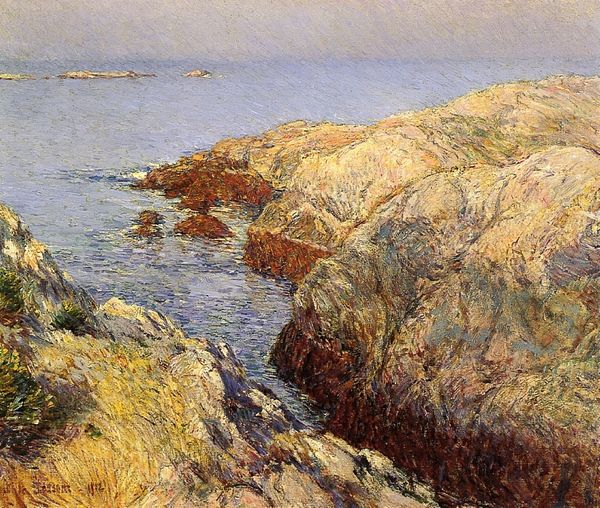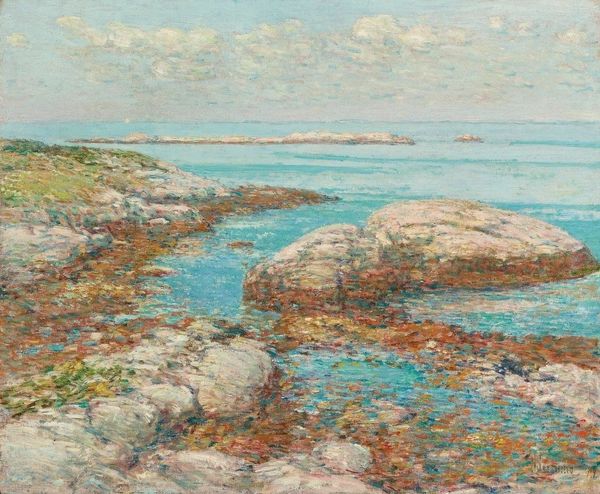
#
abstract expressionism
#
sky
#
cliff
#
abstract painting
#
rough brush stroke
#
fluid brush stroke
#
possibly oil pastel
#
rock
#
acrylic on canvas
#
underpainting
#
paint stroke
#
watercolor
#
swirly brushstroke
Copyright: Public domain
Here, we see Claude Monet's 'Cliff near Dieppe, Overcast Skies,' a painting created in 1897. The painting immediately strikes one with its harmonious color palette, where soft blues and purples dominate, creating a serene, almost ethereal atmosphere. Monet's focus isn't just on depicting the cliff, but on capturing the ephemeral qualities of light and atmosphere. Monet's method of applying paint in short, broken strokes is critical here. Rather than blending colors smoothly, he places them side by side, allowing the viewer's eye to mix them optically. This technique not only captures the shifting effects of light, but also challenges traditional notions of representation in painting. The cliff itself becomes less about its physical presence and more about the play of light and color on its surface. This approach destabilizes our perception of the landscape, turning it into a field of pure sensation. In this way, Monet engages with broader philosophical questions about perception, representation, and the nature of reality itself. This makes the artwork a compelling exploration of visual experience.
Comments
No comments
Be the first to comment and join the conversation on the ultimate creative platform.
